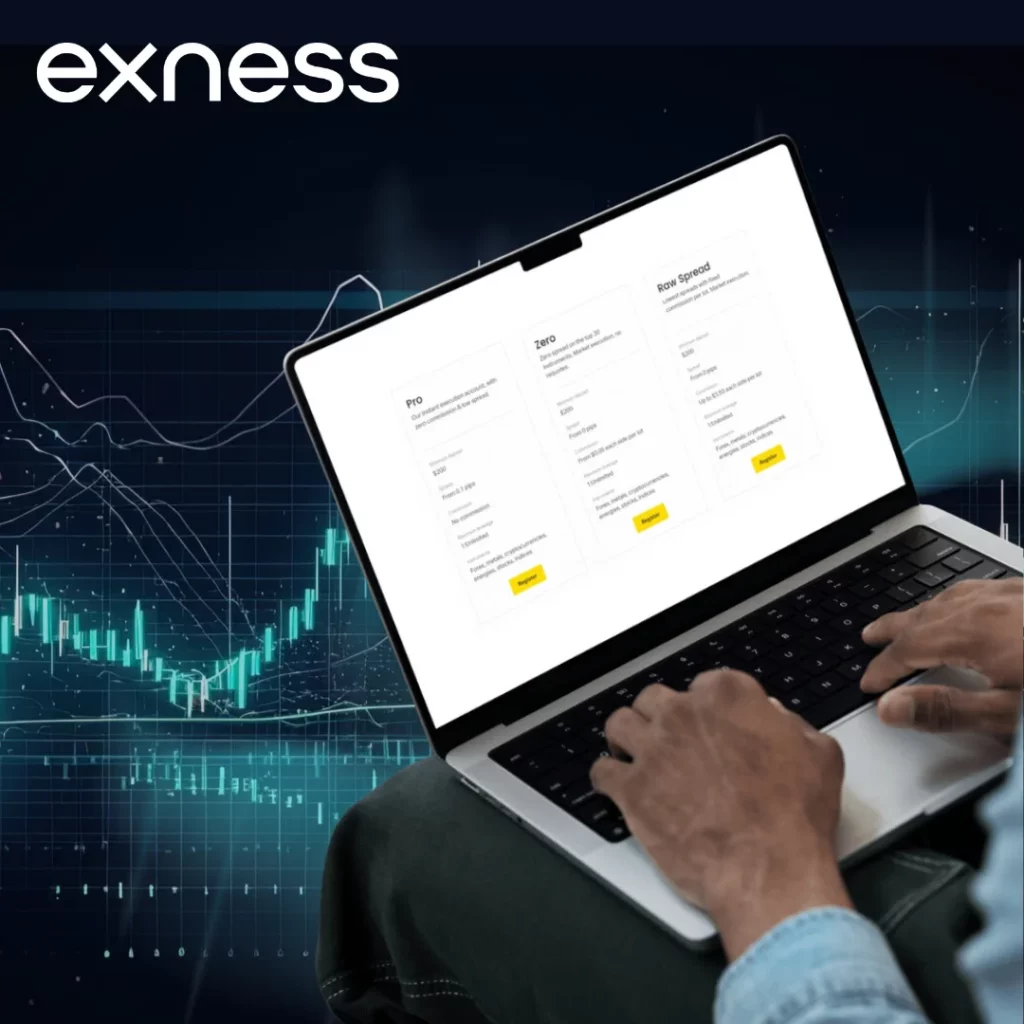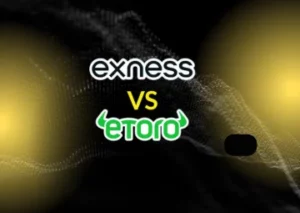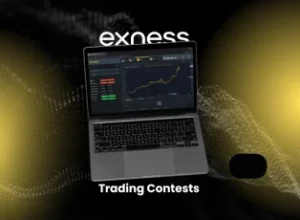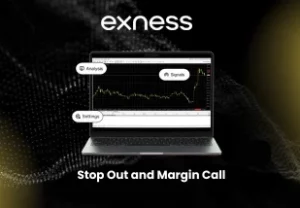Exness and IC Markets are two of the most popular forex and CFD brokers in the industry, each offering competitive trading conditions and a wide range of instruments. Exness is known for its fast execution, low slippage, and transparent pricing, with a focus on providing traders with a variety of account types and advanced trading tools. On the other hand, IC Markets is renowned for its tight spreads, high liquidity, and cutting-edge technology that caters to both retail and institutional clients. While both brokers provide robust platforms like MetaTrader 4 and 5, the choice between Exness and IC Markets often comes down to specific trader preferences such as account types, execution speeds, and fee structures.
Exness Overview
Exness, founded in 2008, has rapidly become one of the largest forex brokers globally. It is known for its wide variety of trading instruments, including forex, commodities, indices, and cryptocurrencies. Exness stands out for offering competitive spreads, a wide range of account types, and high leverage options.
IC Markets Overview
IC Markets, established in 2007, is another popular broker. Known for its low-cost trading environment, IC Markets specializes in providing competitive spreads and offering deep liquidity. It is regulated by top-tier authorities, ensuring traders are protected. IC Markets is particularly favored by scalpers and algorithmic traders due to its low spreads and fast order execution.
Account Types
Both Exness and IC Markets offer a range of account types tailored to different trader needs. Exness provides options like Standard, Raw Spread, and Pro accounts, while IC Markets offers Standard, Raw Spread, and cTrader accounts, each with varying features to cater to different levels of experience and trading strategies.

Exness Account Types
Exness offers several account types to cater to different types of traders:
- Standard Accounts: Designed for beginner traders, these accounts offer low minimum deposit requirements and relatively higher spreads.
- Standard Cent Accounts: Perfect for new traders who want to practice with real money but smaller amounts, allowing trades in cent denominations to minimize risk while learning.
- Pro Accounts: Aimed at more experienced traders, these accounts offer tighter spreads and lower commission rates.
- Zero Accounts: Offers spreads close to zero but comes with a commission per trade.
- Raw Spread Accounts: Popular among professional traders, this account type offers the raw spreads from the market, with a commission on trades.
IC Markets Account Types
IC Markets provides:
- Standard Accounts: Best suited for beginners who prefer no commission trading.
- Raw Spread Accounts: Offers very low spreads starting from 0.0 pips, but traders pay a small commission per trade.
- Islamic Accounts: These accounts are swap-free and cater to traders who require an Islamic-compliant trading account.
Trading Platforms
Exness and IC Markets both support popular trading platforms, including MetaTrader 4 and MetaTrader 5, providing robust tools for traders. IC Markets also offers cTrader for advanced charting and faster order execution, while Exness focuses on providing a user-friendly interface with a variety of account types.
Exness Trading Platforms
Exness offers popular platforms like:
- MetaTrader 4 (MT4): One of the most popular platforms for forex traders, offering numerous features for both manual and automated trading.
- MetaTrader 5 (MT5): A more advanced version of MT4 with additional tools for market analysis.
- Exness Trade App: A proprietary platform for mobile and desktop traders, offering an easy-to-use interface.
- Web Terminal: A web-based platform that does not require installation and is perfect for traders who prefer to trade directly from their browser.
IC Markets Trading Platforms
IC Markets also supports the major trading platforms:
- MetaTrader 4 (MT4): The classic platform known for its simplicity and reliability.
- MetaTrader 5 (MT5): Offers advanced features like more timeframes, additional charting tools, and a wider range of assets.
- cTrader: Known for its low-latency execution and advanced charting tools, cTrader is ideal for scalpers and high-frequency traders.
Spreads and Commissions
Exness and IC Markets both offer competitive spreads, with IC Markets known for its ultra-low spreads, particularly on its Raw Spread accounts. Exness provides tight spreads as well, but the commission structure varies depending on the account type, while IC Markets charges a commission on its Raw Spread accounts.
Exness Spreads and Commissions
Exness offers low spreads, particularly on its Zero and Raw Spread accounts. For example, on the EUR/USD pair, the spread can be as low as 0.0 pips, though there’s a commission involved for certain account types. Additionally, Exness is known for offering instant withdrawals with no fees for several payment methods.
IC Markets Spreads and Commissions
IC Markets is famous for its low spreads, especially on its Raw Spread accounts, with spreads on EUR/USD starting at 0.0 pips. A commission per trade applies, typically around $3.50 per side for the Raw Spread account. These low-cost features make IC Markets a favorite among scalpers and day traders.
Leverage
Exness Leverage
Exness offers flexible leverage options, with some accounts offering up to 1:2000 leverage. This is a huge advantage for traders looking to control larger positions with a relatively small deposit. However, leverage limits can vary based on region and the type of instrument being traded.
IC Markets Leverage
IC Markets offers a maximum leverage of 1:500, which is still generous, but lower than Exness. The leverage offered depends on the type of account and the trading instrument, making it suitable for traders who prefer a slightly more conservative approach to risk.
Regulation and Safety
Exness is regulated by multiple financial authorities, ensuring a safe and secure trading environment, including licenses from CySEC and the FCA. IC Markets is also well-regulated, holding licenses from the ASIC and FSA, providing a secure environment for traders with strong regulatory oversight.
Exness Regulation
Exness is regulated by several well-known authorities, including:
- Cyprus Securities and Exchange Commission (CySEC)
- Financial Conduct Authority (FCA)
- Seychelles Financial Services Authority (FSA)
- Mauritius Financial Services Commission (FSC).
IC Markets Regulation
IC Markets is regulated by:
- Australian Securities and Investments Commission (ASIC)
- Cyprus Securities and Exchange Commission (CySEC)
- Seychelles Financial Services Authority (FSA).
Both brokers are regulated by reputable financial authorities, which adds a layer of trust for traders. However, Exness also offers additional regulatory coverage in the UK through the FCA, which is known for its strict regulatory standards.
Deposit and Withdrawal Methods
Both Exness and IC Markets offer a variety of deposit and withdrawal options, including bank transfers, e-wallets, and credit cards. Exness boasts instant withdrawals for many payment methods, while IC Markets also provides fast withdrawal options with low fees for most methods.
Exness Deposit and Withdrawal Methods
Exness supports a wide variety of payment methods, including:
- Bank Transfers
- Credit/Debit Cards
- E-wallets (PayPal, Skrill, Neteller, etc.)
- Cryptocurrencies.
Exness offers instant withdrawals for many methods, ensuring that traders can access their funds quickly.
IC Markets Deposit and Withdrawal Methods
IC Markets supports similar payment methods:
- Credit/Debit Cards
- Bank Wire Transfers
- E-wallets (Skrill, Neteller, etc.)
- Cryptocurrencies.
However, IC Markets’ withdrawal times can sometimes be longer than Exness, especially for bank transfers.
Trading Tools and Features
Exness offers advanced tools such as tick history, detailed order reports, and social trading, allowing traders to enhance their strategies. IC Markets, meanwhile, provides powerful charting tools, trading signals, and access to automated trading platforms like cAlgo for algorithmic traders.
Exness Trading Tools
Exness provides numerous tools for traders, including:
- Expert Advisors (EAs) for automated trading
- Social Trading where traders can copy strategies from experts
- MetaTrader Plugins and Indicators
Exness also provides various analytical tools to help traders make informed decisions.
IC Markets Trading Tools
IC Markets offers:
- Expert Advisors (EAs)
- cAlgo for algorithmic trading (exclusive to cTrader users)
- Myfxbook AutoTrade for social trading.
These tools enhance the trading experience and are particularly useful for advanced traders.
Educational Resources
Exness and IC Markets both provide educational resources aimed at helping traders improve their skills. Exness offers webinars, guides, and video tutorials, while IC Markets also provides educational content, including tutorials and market analysis, but with a stronger focus on advanced trading techniques.
Exness Education Resources
Exness provides a wide range of educational resources for traders of all levels:
- Webinars and video tutorials
- E-books and articles
- Market analysis to help traders stay updated.
IC Markets Education Resources
IC Markets offers some educational content, including:
- Video tutorials
- Market analysis
- Trading guides.
However, IC Markets’ educational resources are not as extensive as Exness’s, which may be a factor for beginners looking to expand their knowledge.
Conclusion
Both Exness and IC Markets are strong contenders in the forex and CFD trading space. Here’s a quick comparison:
Exness: Offers higher leverage, instant withdrawals, and a wider range of account types. Great for traders seeking flexibility and fast access to their funds.
IC Markets: Known for its ultra-low spreads and low commission fees, making it ideal for scalpers and high-frequency traders.
FAQs
Which broker offers the lowest spreads?
IC Markets generally offers the lowest spreads, especially on its Raw Spread accounts, with spreads starting at 0.0 pips.



